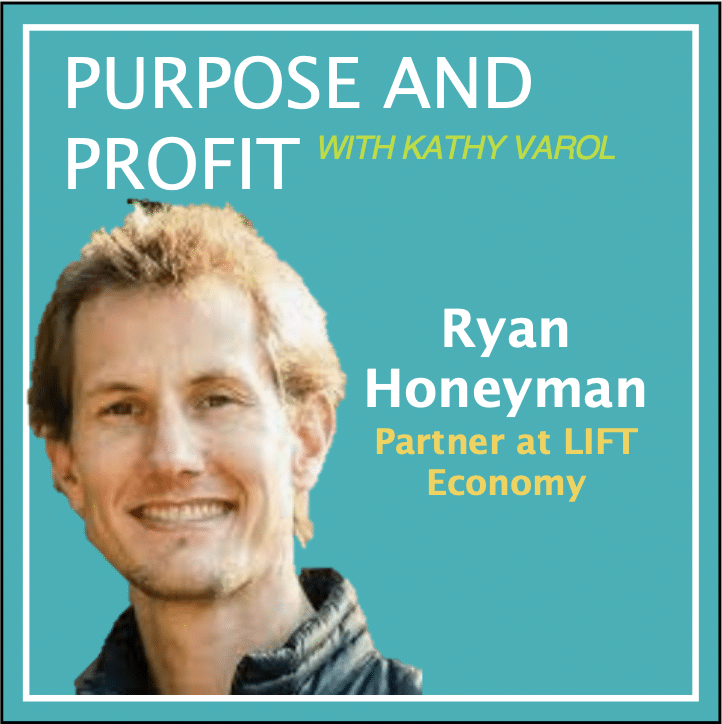Show Notes:
Ryan Honeyman is a Partner at LIFT Economy, an impact consulting firm whose mission is to create, model, and share a locally self-reliant and inclusive economy that works for the benefit of all life.
Ryan is also a coauthor of The B Corp Handbook: How to Use Business as a Force for Good (Berrett-Koehler Publishers). Ryan has helped over 50 companies— including Patagonia, Allbirds, and Ben & Jerry’s—become Certified B Corporations, or to recertify, and maximize the value of their B Corp certification.
Along with his LIFT Economy team, Ryan works with businesses to help them integrate the principles of diversity, equity, and inclusion into their organization. Ryan has a particular focus on working with other white-identified folks (particularly companies that are white-led and/or majority white) in order to help educate, organize, and mobilize as part of a multi-racial, cross-class movement towards collective liberation.
Find out more about the LIFT Economy here.
In This Episode We Discuss:
- The relationship and distinction between B Corp, B Labs, and Public Benefit Corporations
- The most common hurdles companies face on their path to becoming a certified B Corp
- What a “worker cooperative” is
- Why not all investments are created equal, and the power of a holistic stakeholder perspective
Key Takeaways:
- Remember that each of us has a voice, and within that voice there is power. As shareholders, we have the power to choose the companies we invest in as well as power to ask for those companies to consider all stakeholders (and we can support them with our votes to legally transition to a public benefit corporation). As employees, we have power to ask what our employer’s environmental, social and governance (ESG) strategy is, where your company currently stands, and how they’re trying to improve.
- What would it look like if businesses were driven by humanity instead of efficiency? How would the decisions we make change? How would our working environment change? How would our relationship to work change? How would our communities change?
- The importance of looking at the ripple effects of our actions—the second and third order consequences—both good and bad. Considering the ripple effect gives a holistic perspective of our impact, and can help us make more intentional, informed, and equitable decisions.
References:
- Follow Ryan on Twitter
- Learn more about the Next Economy MBA program
- Sign up for the LIFT Economy newsletter
- Listen to the Next Economy Now podcast
- The B Corp Handbook (Second Edition): How You Can Use Business as a Force for Good by Ryan Honeyman & Dr. Tiffany Jana
- B Lab and general information about the B Corporation movement
- Cradle to Cradle: Remaking the Way We Make Things by William McDonough & Michael Braungart
- Author Paul Hawken
- The United Nations’ Sustainable Development goals
- Seed Commons network of community loan funds
- Boston Ujima Project
- Southern Reparations Loan Fund
- B Impact Assessment tool for your company

